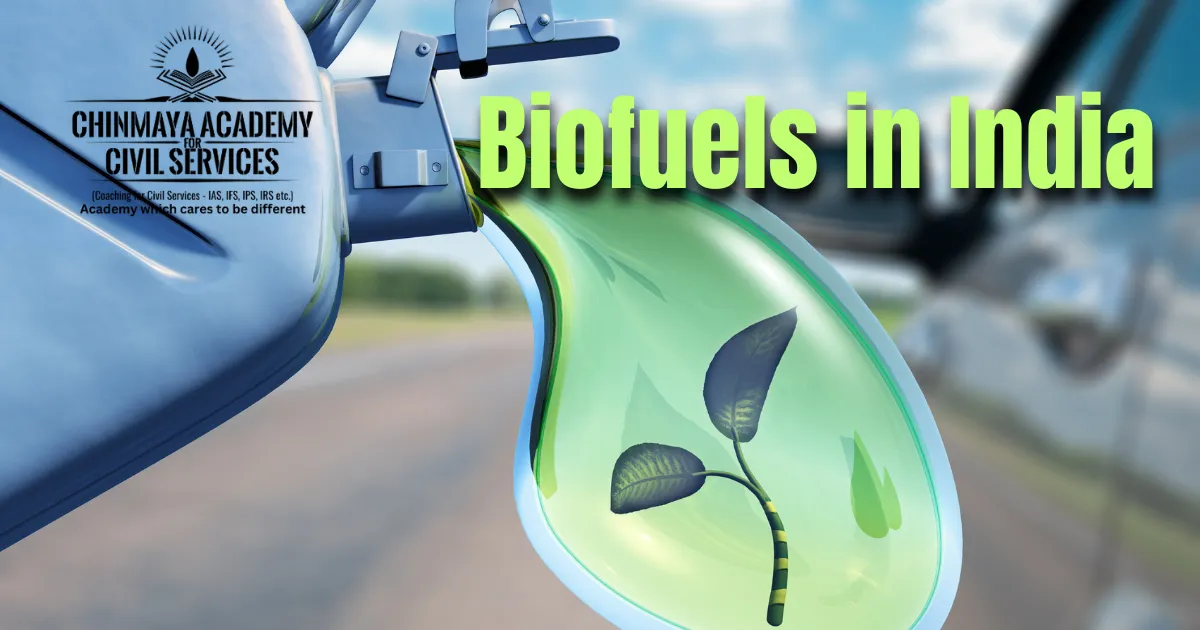
Any hydrocarbon fuel that is produced from an organic matter within a short period of time is considered a biofuel. It may be solid, liquid or gaseous in nature.
Solid: Wood, dried plant material, and manure
Liquid: Bioethanol and Biodiesel
Gaseous: Biogas
Generations of biofuel
First generation
- Sourced from food-based plants containing energy molecules
- Limited biofuel yield
- May have negative impact on food security
- Ex.: bioethanol and biodiesel
Second generation
- Use feedstock of lignocellulosic plant material
- Includes non-food-based items or by-products of food crops that are considered waste such as straw, bagasse, forest residues
- Reduced greenhouse gas emission compared to 1G
- Limited commercial scale production
- Ex.: biodiesel and cellulose ethanol
Third generation
- Primarily based on microorganisms like algae for production
- Provides high-yield and does not rely on arable land use
- Fertilizers used for its production may cause environmental pollution
- Still in the research and development stage
Fourth generation
- Also known as photobiological solar fuels
- Crops are genetically modified to absorb large amounts of carbon and then converted into fuel using second-generation techniques.
- Inexhaustible, cheap and widely available
- Some of these fuels are considered carbon-negative
- Still in early stages of research
The two most widely used biofuel types are
- Sugar-based bioethanol production
- Fatty acid methyl ester-based biodiesel
Benefits for Biofuel use
- Biofuels offer both advantages and disadvantages in terms of environmental, economic and social sustainability.
- Reduction in greenhouse gas (GHG) emissions
- Increases energy security through lower import of crude oil
- Increase participation of local entrepreneurs and sugarcane farmers in the energy economy
- Supports overall rural development
- Decrease vehicular emissions
Initiatives taken
Initiatives by the Department of Biotechnology, Ministry of Science and Technology
- It developed technology for 2G Ethanol, Indigenous Cellulolytic Enzyme for biofuel production and micro algae-based sewage treatment.
- Expanded global cooperation through initiatives like Mission Innovation and Bio Future Platform to reach target goals faster
- Launched in 2019
- Aims to foster an environment for the development of business ventures
- Aids to advance research and development in the 2G ethanol market
Ethanol blending
- Biofuel Policy, 2018 has set target of reaching 20% ethanol-blending and 5% biodiesel-blending by the year 2030.
- The Government has reduced GST on ethanol blending from 18% to 5%.
GOBAR (Galvanizing Organic Bio-Agro Resources) DHAN scheme
- Launched in 2018 under the Swachh Bharat Mission (Gramin)
- Focused on utilizing solid farm waste into compost, biogas, and bio-CNG, which in turn keeps villages clean and boosts rural economy
Repurpose Used Cooking Oil (RUCO)
- Launched by the Food Safety and Standards Authority of India (FSSAI)
- Creates an ecosystem where used cooking oil is collected and converted to biodiesel
National Policy on Biofuels
- Launched in 2018 by Ministry of Petroleum and Natural Gas
- Categorization of biofuels to better target extension of financial and fiscal incentives. The two main categories are:
- Basic Biofuels- First Generation (1G) bioethanol & biodiesel
- Advanced Biofuels – Second Generation (2G) ethanol, Municipal Solid Waste (MSW) to drop-in fuels, third Generation (3G) biofuels, bio-CNG etc.
- Expanded scope of raw material for ethanol production by allowing use of Sugarcane Juice, sugar containing materials, starch containing materials, and damaged food grains unfit for human consumption
- Allowed use of surplus food grains for production of ethanol to ensure appropriate price to farmers with the approval of the National Biofuel Coordination Committee.
- Viability gap funding scheme for 2G ethanol Bio refineries in addition to tax incentives and higher purchase price
- Encourages setting up of supply chain mechanisms for biodiesel production from non-edible oilseeds, used cooking oil, short gestation crops.
Challenges
- Potential food security and water challenges posed as sugarcane is a water intensive crop grown on land meant for food production
- India is currently a net importer of ethanol as per reports released by Niti Aayog which means that it is yet to contribute to increase in energy security.
- The gains in tailpipe emissions from ethanol blending too small and may become redundant with the push for electrifying surface transport.
- Benefit to farmers and rural economies from biofuel production in Indian scenario may bring few benefits at very high cost.
 Chinmaya IAS Academy – Current Affairs Chinmaya IAS Academy – Current Affairs
Chinmaya IAS Academy – Current Affairs Chinmaya IAS Academy – Current Affairs
